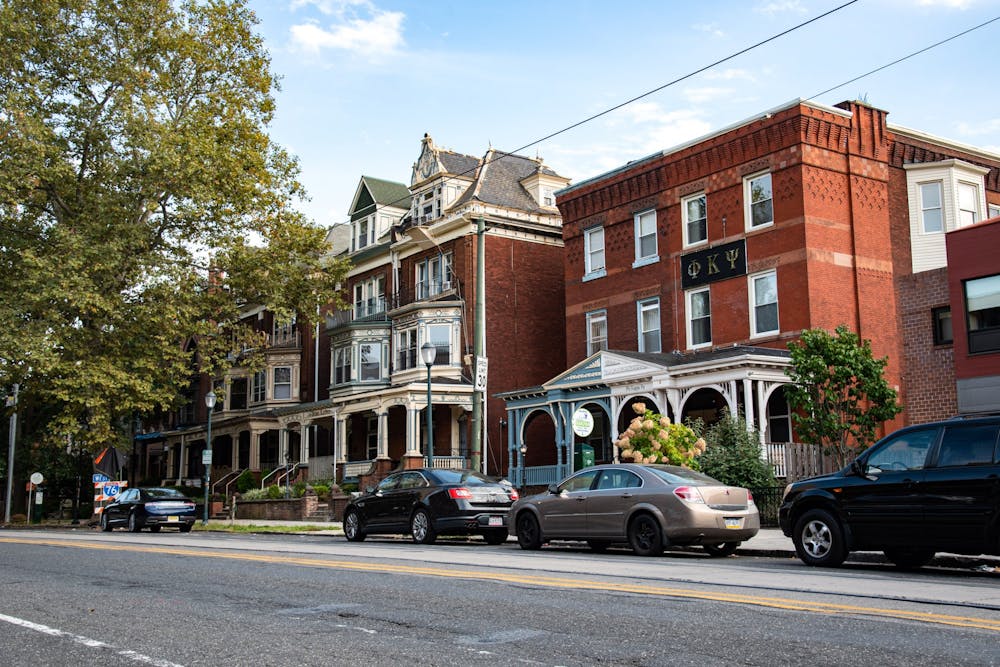Once upon a time at Penn, sophomores did not have to live on campus. Now that Penn mandates sophomores to live on campus, the future of Greek life housing is a tumultuous vortex of financial burdens and stress for house managers and executive board members, as they search, and often fail, to find juniors and seniors willing to live in their housing. Penn created this policy, so Penn should provide the much-needed financial assistance to cover the costs imposed on Greek chapters who are unable to reach capacity in their homes.
Greek life housing is unique at Penn, grouped with either on-campus or off-campus housing depending on the situation. When all on-campus housing was closed due to COVID-19, so were the Greek life homes. This left many, including myself, without housing for the fall of 2020. Following this line of reasoning, one might assume that Greek housing is considered to be on-campus housing. However, it is not. Sophomore students, who were typically the primary residents of chapter homes, are not permitted to live in chapter houses, because Penn considers them to be off campus.
The problem is then that chapters are struggling to fill their chapter homes because of Penn’s change in policy. Depending on the individualized configurations of each home, the issue is exacerbated. While some offer only single-occupancy rooms, others have doubles and even triples, begging the question of why juniors and seniors who have already been living in highly communal and tight-knit spaces on campus would willingly choose to live in those same conditions as upperclassmen. While many do live with their sorority sisters and fraternity brothers, they choose to do so off campus, avoiding the risk of personal complications arising from sharing a room.
This leaves house managers or executive board members, depending on who chapters assigned to such a task, with the job of filling the house. The system many house managers report using at house manager meetings, of which I have attended, is a lottery system, put in place when homes are unable to find enough volunteers to live there, requiring all chapter members to send in leases or risk getting drawn to live in the chapter home. When these lotteries fail to draw enough people to fill the house, these house managers or executive board members are left with the stress of finding a solution. In both personal experience and conversation with executive board members across the Penn Greek life community, the Office of Fraternity & Sorority Life provides little guidance in this realm, often pinning the problem on the decision made by Penn. While they too might be powerless, it is unreasonable to expect undergraduate students to play landlord.
The consequences of not filling the chapter home is a major financial burden for chapters. For every vacant room, chapters are responsible for paying what a resident would normally pay had the room been occupied. This is because national representatives for the respective sororities and fraternities, whose homes are owned by the University, signed contracts promising that chapters would make up any costs. Some of these contracts were signed as early as the 1920s, but all were before the sophomore on-campus housing rule was put into effect. The cost chapters will be required to make up per room, according to next year’s housing agreements with OFSL, will be upward of $12,326 for the full year, depending on the room size. Being a part of Greek life is already expensive — dues for IFC fraternities range from $200 to $1,000 a semester for current members, while dues for current Panhellenic Council sorority members range from $250 to $709 a semester. To make up the cost of partially vacant chapter homes, these already expensive dues will have to increase, placing an additional financial burden on many members.
The culture at Penn is still not entirely acclimated to the sophomore on-campus housing rule. These next few years are transitional. While Greek life organizations and members adjust to the fact that homes must be filled by upperclassmen, Penn should not place an extra financial burden on students, and instead should cover the costs of the homes that were unable to reach capacity, so long as they demonstrate having made an honest effort to fill their homes.
ISABELLA GLASSMAN is a College junior studying philosophy, politics, and economics from Suffern, N.Y. Her email is iglass@sas.upenn.edu.









